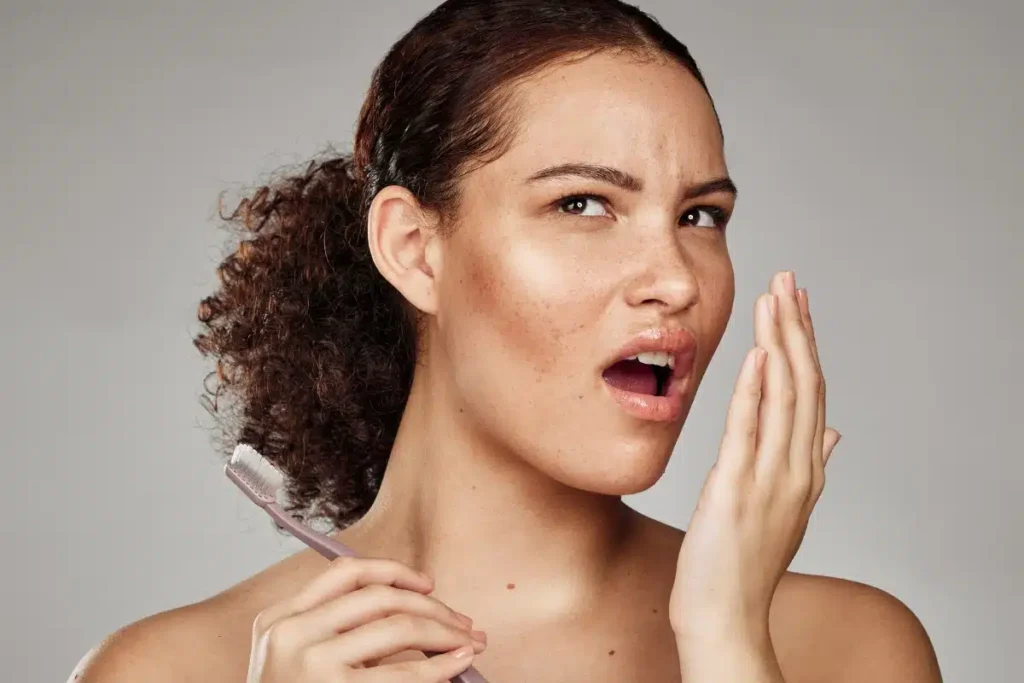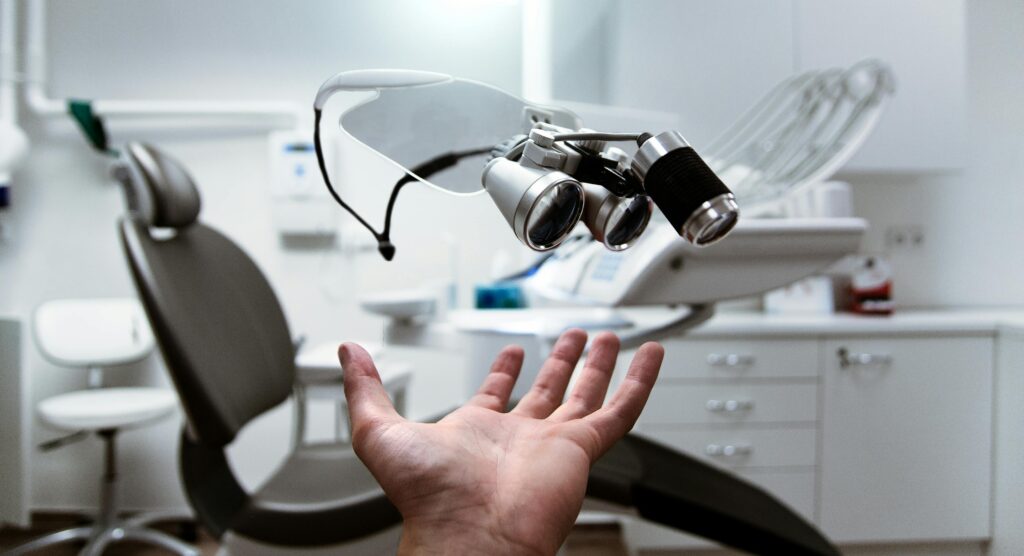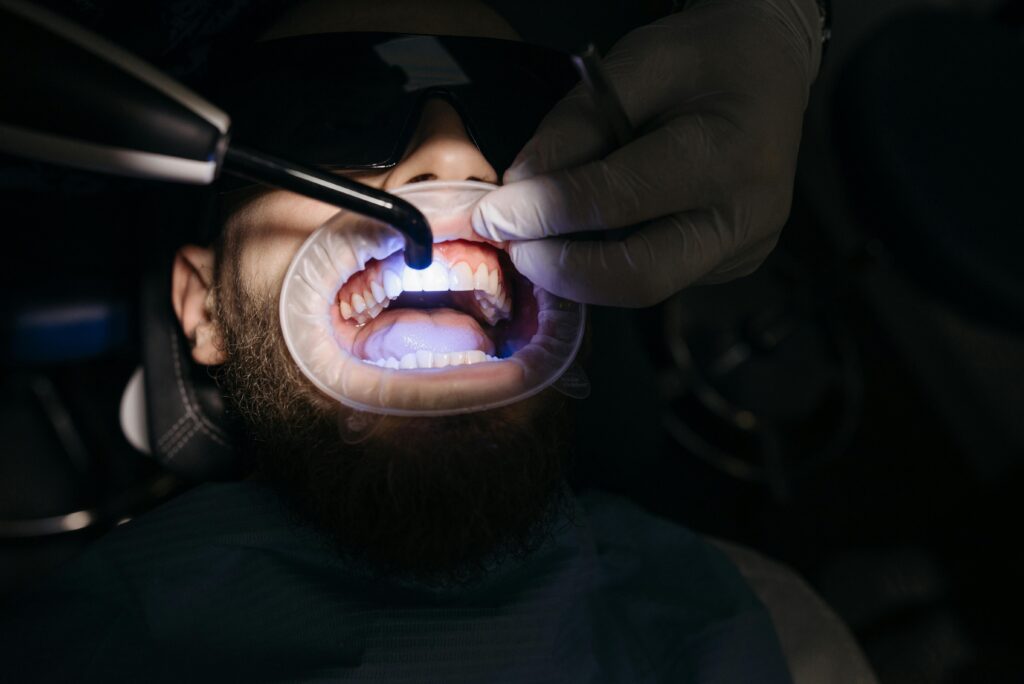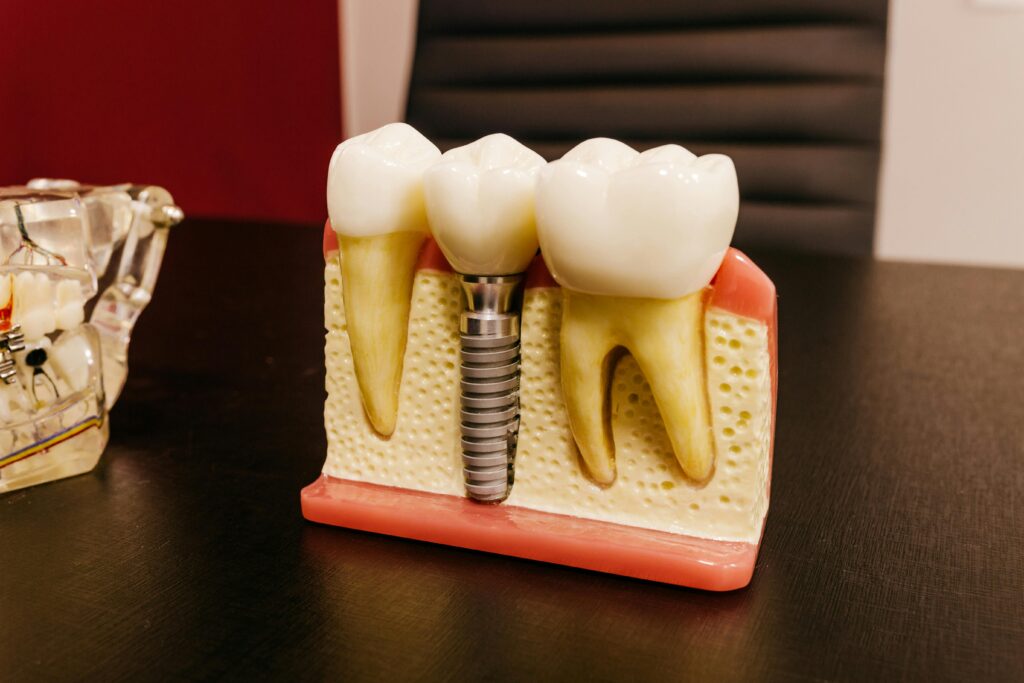We all are experience Bad breath from time to time, if we take sticky foods, drinks, or other things. Usually, with a mint and mouthwash it’s temporary can be resolved. However, if bad breath becomes permanent, you can lose your confidence, relationships, and your career may be at a risk.
Table of Contents
What Causes Bad Breath?
In some cases, bad breath becomes a temporary issue. But it takes to bad health problems, such as gum disease and digestive issues. Here are the basic common issues include dry mouth, tobacco use, and certain medications.
Your dentist near me may recommend treatment if you experience:
- Dry mouth treatment
- Tobacco products treatment
- Gum disease treatment
- Wearing dentures treatment
- Medication side effects treatment
What Is the Treatment for Bad Breath
At your dental visit, your dentist near me will perform an examination to your oral health and potential causes for bad breath. This might include an assessment of your teeth, gums, tongue, and any dental machines you use.
Our Dentists use specialized tools to detect the cause bad breath.
1. Maintain Good Oral Hygiene
Brush Two times Day to day: Clean teeth for something like two minutes two times every day with fluoride toothpaste. Tooth brushing removes bad food organism, which can cause bad breath.
Basic Use of Mouthwash: Antibacterial mouthwashes can assist with decreasing microscopic organisms that cause terrible bad breath. Avoid alcohol-based mouthwashes if they irritate your mouth.
Wash Your Tongue: On your tongue have bacteria and food particles which can’t be remove easily. You need to clean your tongue daily to make it more secure and fresh.
Floss Removes Daily: Flossing removes bad food particles between teeth where a toothbrush cannot reach easily.
2. Stay Hydrated
Drink Plenty of Water: Dry mouth can cause bad breath because it allows odor-causing bacteria to thrive. Drink a lot of water 8 liters per day or minimum 5 liters water per day which helps to wash away bad food particles and bad organisms.
Use Sugar-Free Gum or Mints: Chewing gum stimulates saliva production, which can help wash away bacteria.
3. Dietary Adjustments
Limit Food varieties with Solid Scents: Food varieties like garlic, onions, and certain flavors can add to bad breath. Try to limit or avoid these foods if bad breath is an issue.
Reduce Coffee and Alcohol Intake: Both can dry out the mouth, which can worsen bad breath.
Avoid Sugary Foods: Bacteria feed on sugar, which can lead to an increase in odor-producing bacteria in the mouth.
4. Quit Smoking and Avoid Tobacco Products
Smoking and other tobacco products cause dry mouth, damage gum tissues, and contribute to bad breath. Quitting can significantly improve oral health and freshen breath.
5. Treat Underlying Medical Conditions
Address Sinus or Respiratory Infections: Chronic sinus infections, bronchitis, and other respiratory infections can lead to bad breath. Treatments might be necessary.
Manage Gastrointestinal Issues: Conditions like acid reflux can sometimes cause a sour odor in the mouth. Proper treatment from a doctor can help manage these issues.
Address Gum Disease: Gum disease, like gingivitis or periodontitis, can cause persistent bad breath. You must need a regular dental checkup and cleanings are necessary, if gum disease is present.
6. See a Dentist Regularly
Professional Cleanings: A professional cleaning every six months helps remove plaque, tartar, and bacteria below the gum line, reducing the likelihood of bad breath.
Regular Check-ups: Regular dental visits help detect and treat oral health issues, such as cavities or gum disease, that may cause or contribute to bad breath.
7. Consider Specialized Products
Use Oral Probiotics: Certain probiotics are designed to balance the oral microbiome, potentially reducing bad breath by outcompeting odor-causing bacteria.
Look for Zinc-Based Products: Mouthwashes or toothpastes with zinc may help neutralize sulfur compounds, which are often responsible for bad breath.
By following these practices and seeking help from a healthcare provider, if necessary, you can effectively reduce or eliminate bad breath and promote better oral health overall.
Here are the Most Common Bad Breath Treatments Include:
- Professional teeth cleaning treatment to remove bad organism from mouth
- Antibiotic Mouthwash
- Flossing devices
- Cavities Composite Fillings
- Tooth Extractions Near Me
- Old dentures Replacement
- Medications to remove saliva for dry mouth
Preventing Bad Breath
Preventing bad breath is crucial for good oral health and social confidence. It starts with a consistent oral hygiene routine: brushing twice a day with fluoride toothpaste, flossing daily, and cleaning the tongue to remove odor-causing bacteria. Staying hydrated is essential, as dry mouth creates an environment where bacteria can thrive. Drinking water throughout the day and chewing sugar-free gum helps stimulate saliva, which naturally cleanses the mouth.
Dietary habits also play a role; limiting foods like garlic, onions, and excessive sugar can reduce lingering odors. Avoiding tobacco products and limiting alcohol and coffee, which dry out the mouth, are also key steps. Regular dental check-ups help ensure any early signs of gum disease or other oral health issues are treated promptly. Additionally, using an antibacterial mouthwash and products with zinc can help neutralize bad breath at its source. By following these steps, you can prevent bad breath and promote lasting oral freshness. At Albany Dentist Expert, we ensure that your next big event, like it’s a job interview, special occasion, won’t be hindered by concerns about bad breath.
Visit your trusted dentist in New York to take control of your oral health and say goodbye permanent to bad breath.







